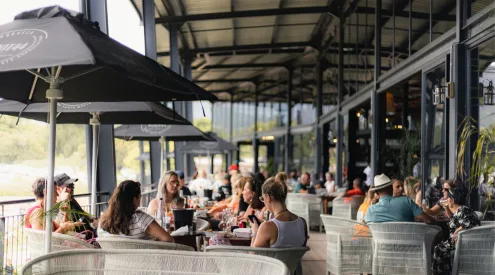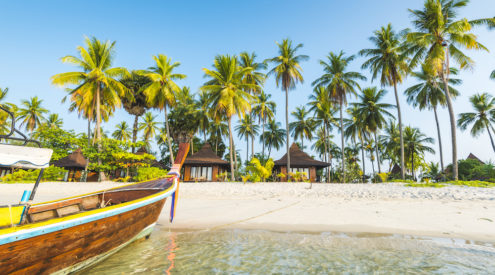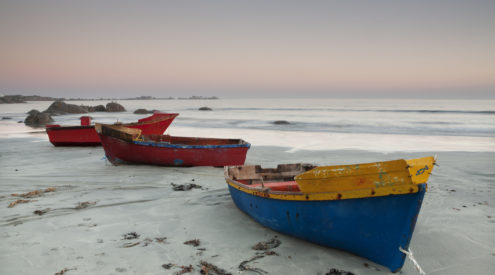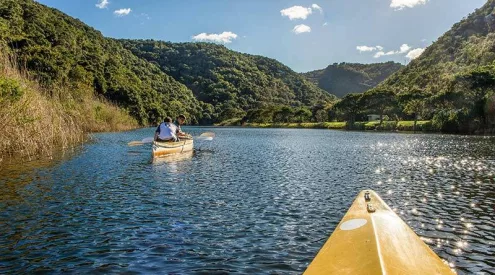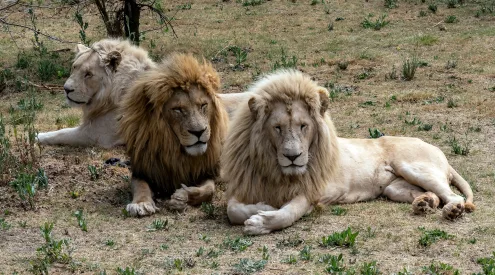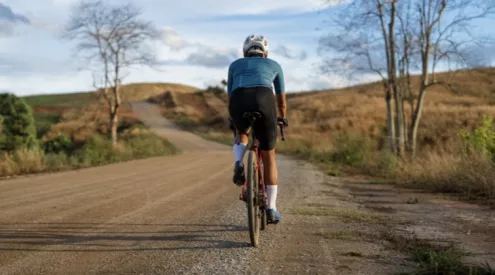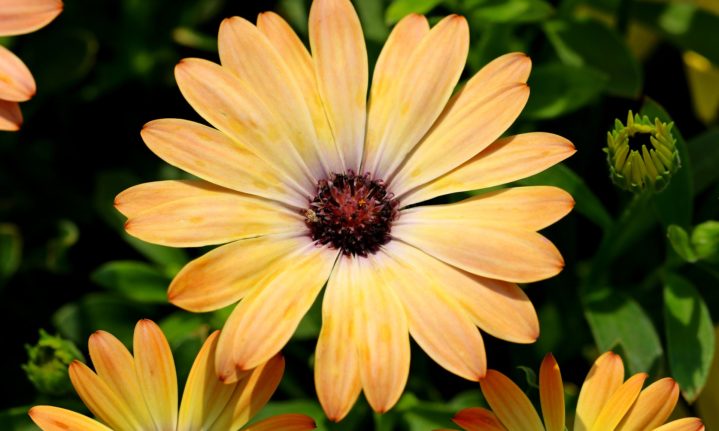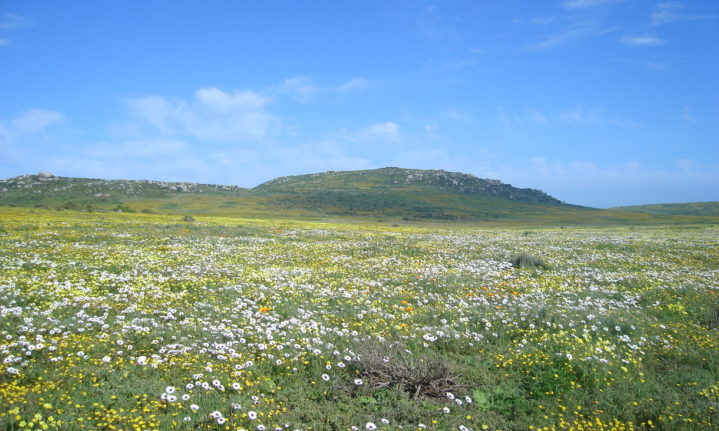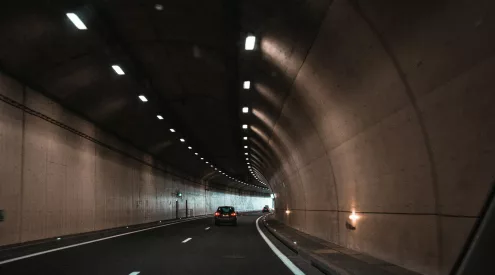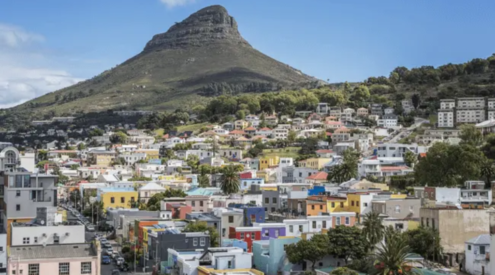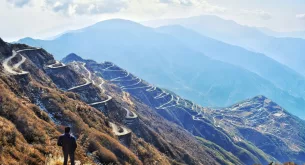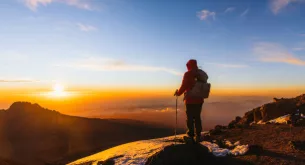Every year from early August through to the end of September – and sometimes longer depending on the amount of rainfall each year – carpets upon carpets of colourful wildflowers pop up from the ground, decorating the Cape West Coast in every direction that one can turn. Often, they sprout seemingly overnight, transforming the dry, lacklustre scrub into a vibrant palette and masterpiece that only Mother Nature herself could have created.
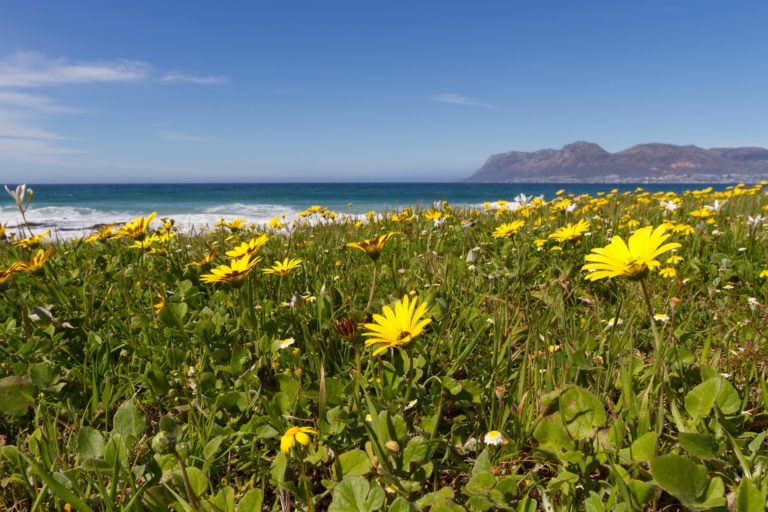
In fact, the natural phenomenon is so mesmerising that thousands of people venture from far and wide with the primary objective of laying eyes on the magical sight in person. If you are keen to do the same, you might be wondering where to go and how to make the most of the adventure. Here’s everything that you need to know.
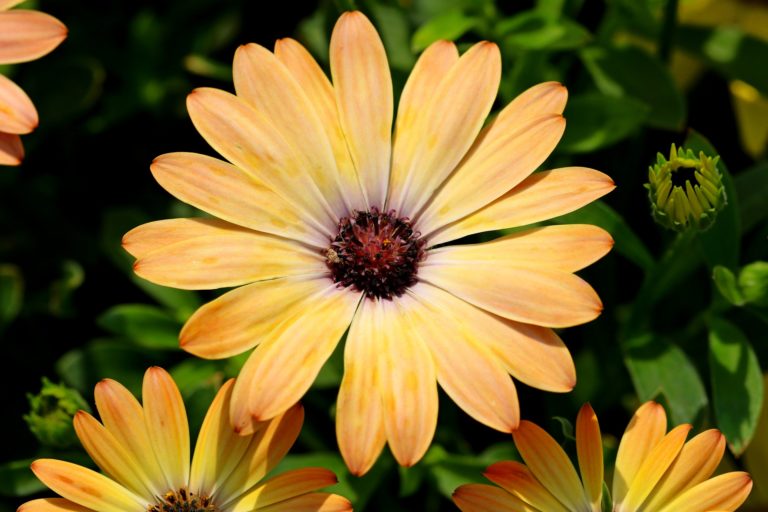
Tips for experiencing Cape wildflower season to the maximum
- Since the flowers tend to disappear as suddenly as they sprouted, it’s crucial that you plan your trip carefully, paying close attention to when the first winter rains are predicted to fall. Generally, the flowers begin to bloom in the north, starting in Namaqualand, and occasionally as early as late July. From there, they spread like fire along the west coast until they reach Yzerfontein and Darling by late August/beginning of September.
- If you’re going to be visiting the southern regions in search of wildflowers, keep up to date with the local temperatures leading up to your holiday. The flowers don’t cope well in warmer weather, so if the days heat up too quickly, they won’t last nearly as long as they would if the cooler temperatures stuck around until the start of October.
- It’s also vital that you book your trip well in advance to avoid disappointment. The good news is that, due to COVID, many travel suppliers are offering a greater level of flexibility when it comes to changing bookings. So, if the weather in the area isn’t behaving as predicted, you can move your visit slightly forward or back to ensure that you don’t miss the stunning floral display when it finally presents itself.
- It’s becoming pretty clear that Cape wildflower season is all about timing, and that goes for the time of the day that you go flower viewing, too! Most will agree that the flowers look their best either in the late morning (10 am – 11 am) or the late afternoon (3 pm – 5 pm).
- Remember, while you’re welcome to hop out of your vehicle and walk amongst the blooms to fully appreciate them up close, please do not pick them. Rather leave them where they are for others to enjoy just as much as you have!
The best places to see the Cape wildflowers
‘You’re definitely not making the trip to appreciate a few pretty flowers here and there,’ says Annamarie de Nobrega, an avid traveller from Johannesburg. ‘The real magic of the experience lies in the sheer expanse of the flowers, and the multitude of colours that surround you – from flaming oranges to deep purples and every other colour of the rainbow. It really is breathtaking to see.’
The question is, where exactly should you be headed for the best possible view?
For those visiting Cape Town for other reasons but who still want to get in on the action, the best place to go is the Kirstenbosch Botanical Gardens, just a 20-minute drive from the city centre.
Slightly further out, but well worth the trip, is Postberg and the West Coast National Park. Along with marvelling at the wildflowers, you’ll also enjoy the bonus of scoping the park for wildlife, such as eland, kudu, zebra, and caracal.
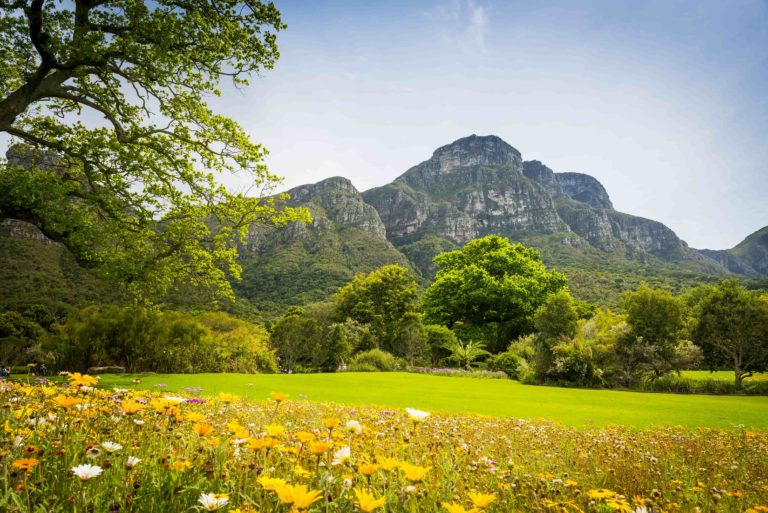
Citrusdal is a quaint town and hidden gem that bursts with colour in the springtime. Nestled on the Cape Flower Route, it’s about 2 hours from Cape Town, and promises sights of daisies, bloedblom, maartblom, and plenty of flourishing fynbos.
‘Travellers hoping to make Citrusdal their base for their wildflower exploits should consider planning a stay at Piekenierskloof Mountain Resort. It’s in a secluded location for effortless social distancing and offers access to an array of family-friendly activities, such as mountain biking, volleyball, archery, zip-lining, and more!’ comments Sharmila Ragunanan, Marketing Manager for Dream Hotels & Resorts.
The Renosterveld Reserve boasts sprawling fields packed to the brim with wildflowers and is a fantastic spot for a scenic family hike.
The Namaqualand National Park is the ultimate wildflower viewing destination if you’ll be travelling in late July or early August. It’s especially well-known for its abundance of the aptly named Namaqualand daisies.
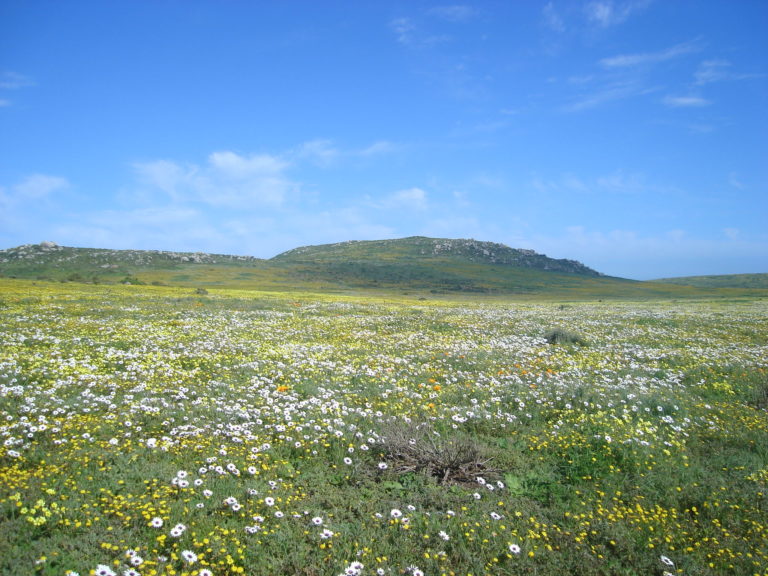
Other must-visits during this sought-after season include:
- Harold Porter Botanical Garden
- Karoo Desert National Botanical Gardens
- Tienie Versfeld Wildflower Reserve
- Agulhas National Park
- Cape Columbine Nature Reserve
In short, when your life needs a little burst of hope and colour, you needn’t look any further than the Cape West Coast and its beautiful blossoms. Go ahead and book that mid-year getaway!
Other highly recommended places to visit during the flower season
The popular West Coast village of Velddrif hugs the banks of the Berg River, just a few kilometres from where the river enters the ocean at St Helena Bay. Visitors can look forward to a profusion of flowers to be enjoyed while soaking up the rich and welcoming culture and lifestyle of this coastal community – which offers an abundance of activities, accommodation options, and eateries to suit all tastes.
No trip to Velddrif is complete without a visit to the famous Bokkomlaan. Fringed by the Great Berg River this quaint dirt road is scattered with a cluster of historic buildings and jetties. In addition to the flower-filled scenery, visitors can expect to spot a vast array of birdlife in the Berg River estuary – rated as one of the most important birding areas in the world.
Just inland from Velddrif, along a stretch of country road that promises wonderful flower sightings, lies the picturesque town of Aurora. This small, once unheard-of gem is a village of hidden surprises where visitors in Spring can look forward to carpets of flowers, dramatic mountain scenery, beautiful Sandveld architecture, incredible night skies, and a wide variety of birdlife.
Be sure to visit the impressive Dutch Reformed Church while in town, and take a trip to McClear’s Beacon, a national monument situated on the farm Klipfontein which was used by the 18th-century French astronomer, Abby de la Caille, to measure the shape of the earth in the southern hemisphere. Also, take a drive up the mountain in the Danielshoogte Private Reserve and experience spectacular views of the valley – on clear days, Table Mountain and St Helena Bay can be seen.
Die Rooi Granaat Restaurant and the Koekeloer @ Koffiemoer Coffee Shop are highly recommended stopovers in Aurora for hungry travelers.
Another 50km inland from Aurora will see flower-loving road-trippers finding their way to the town of Piketberg, which is nestled at the foot of the Piketberg Mountain range and surrounded by a tapestry of wheat fields, vineyards, fruit farms and indigenous fynbos bearing beautiful blooms in Spring.
Last but certainly not least on the list of highly recommended towns to visit this spring is Porterville, a quaint village nestled on the slopes of the Olifant’s River Mountains at the base of the Groot Winterhoek Wilderness Area – only 150 kilometres from Cape Town.
Pictures: Supplied
ALSO READ
Postberg section in West Coast National Park opens for flower season


